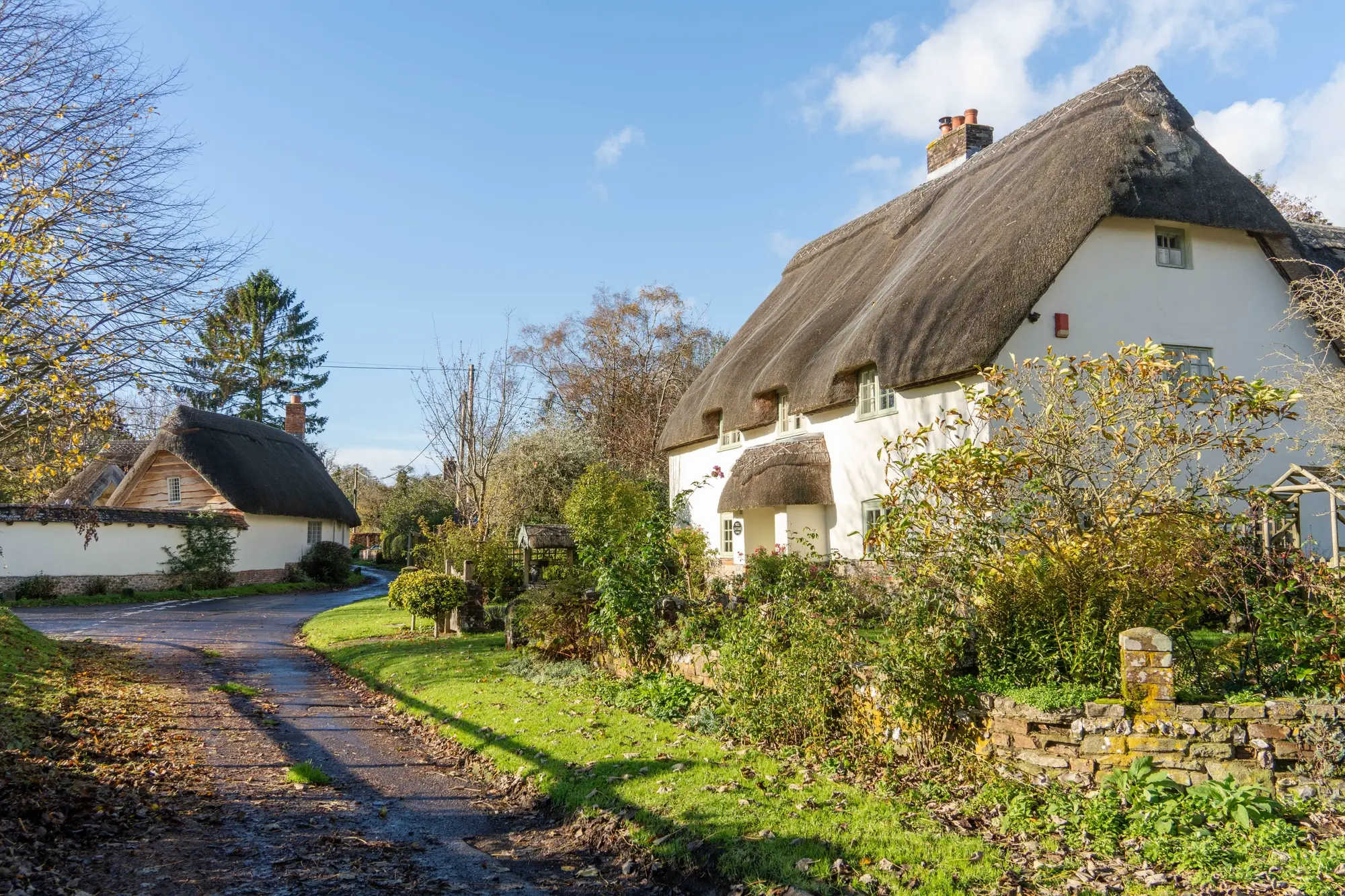Some of the links below are affiliate links and I will earn a small percentage if you purchase through them, at no extra cost to you. This helps me cover the costs of running my site - so thank you in advance!

Accommodation is often the biggest expense while traveling, but it doesn’t have to be. There are many ways to find free accommodation, so you spend your money on experiences and flights instead.
By leveraging hospitality exchange networks, house-sitting opportunities, and volunteer work exchanges, you can find comfortable places to stay without spending much.
Free accommodation options are more accessible than ever thanks to online platforms and growing travel communities. So in this article, I’ll share my tried-and-true strategies for finding and securing these opportunities.
What is free accommodation? By free accommodation, I mean that you don’t have to spend money (or very little) to stay somewhere. But you might have to give some time and effort.

Article overview
House & pet sitting
My favorite way to stay for free while traveling is house and pet sitting through Trusted Housesitters. This platform connects homeowners with reliable sitters who look after their property and pets in exchange for accommodation.
It’s a win-win situation – homeowners get peace of mind, and we enjoy free accommodation in exciting destinations. Plus, we get the company of adorable pets. I have always wanted a dog, but the timing has never been right since I travel so much.
Also, you get to know people and places you never would have otherwise. You just have to be flexible with your dates and destinations.
Here’s how it works:
- Create a profile on Trusted Housesitters
- Apply for sitting opportunities
- Arrange details with the homeowner
- Stay for free while caring for the home and pets
Responsibilities typically include:
- Feeding and exercising pets
- Watering plants
- Collecting mail
- Light housekeeping (some have help)
I’ve had amazing experiences house-sitting in several locations, from cozy apartments to big houses. I even scored a house-sitting job in the Cotswolds. Yes, can you believe it? It was one of my dream destinations at the time.
Note >> You have to pay a yearly membership fee (basically the price of one night in a hotel) and then you can apply for as many housesits as you want. But you can click here to sign up for free and look through opportunities first.
There are also sites where you can get paid to take care of pets and other tasks, such as Rover.com and Care.com. Though I have not yet tested these sites myself.

Couchsurfing
Couch surfing is a term for permitting someone to stay in your house for free. Beyond the obvious financial benefits, couch surfing provides a unique cultural immersion, allowing you to connect with locals and gain insider knowledge about their destination.
Hosts often share valuable tips about hidden gems, local customs and off-the-beaten-path attractions that guidebooks might miss. In return the host gets company, maybe you can cook some traditional dishes from your country or teach them your language.
Additionally, couch surfing encourages a spirit of reciprocity and community, where travelers can later become hosts themselves, creating a global network of hospitality and cultural exchange. Don’t be surprised if you make friends for life.
Though Couchsurfing is the largest site of its kind, there are a few other similar sites out there such as Be Welcome and Hospitality Club.

Volunteering
Volunteering is another fantastic way to secure free accommodation while traveling. The feeling of giving back is rewarding.
Platforms like Workaway, WWOOF, Hostel Jobs, Anywork Anywhere and Worldpackers connect travelers with hosts worldwide who provide lodging in exchange for a few hours of work each day.
I have often browsed these sites but never actually applied for an opportunity. But what I see most often is work on organic farms, at hostels and helping with community projects. Many families also look for people to help with anything from gardening to teaching English and childcare.
Typical arrangements involve working 4-5 hours a day, 5 days a week. In return, you can expect a free place to stay and sometimes also meals and use of a car, etc.
Just like housesitting and couch surfing, volunteering provides unique insights into local cultures and communities.

Teach English
Are you a native English speaker? Then you can also get free accommodation and meals in return for just hanging out and having conversations with people. Formal credentials are not required.
I so wish I could apply for this. But unfortunately, my Norwegian accent is a little too apparent haha.
Speak brings together native English speakers from all around the world to teach Italian learners in Lombardy, Lazio and Puglia.
Vaughan is another example where you can help improve the English of Spanish professionals over a two or six-day program. They have several locations in Spain, Córdoba, Zaragoza and Cuenca to name a few.

Home exchange
One of my all-time favorite Christmas movies is “The Holiday,” where two women from England and the USA swap homes for a trip of a lifetime.
I remember watching it for the first time back in 2006, it was the first I’d ever heard of home exchanges. It looked like so much fun and I promised myself I would try it one day.
Because this concept isn’t just fiction – it’s one of the best ways to score free accommodation while traveling. I’ve found several websites that facilitate house exchanges, but HomeExchange is the main player with 150,000 members in 145 countries. People Like Us is also a great option.
You can usually do an exchange in two ways:
Reciprocal exchange: Two families exchange homes, whether simultaneously or on different dates.
Exchange with points: If the home you want to stay at isn’t up for a swap, you can offer them GuestPoints that they can use to go stay at another Member’s home.

Work as a creator
As a travel creator, you can pitch to stay for free in exchange for content. Many hotels, resorts and vacation rentals are eager to partner with influencers and content creators to promote their properties. When you grow your audience you can even get paid to do it.
I’ve had the most success reaching out to boutique hotels, offering to create social media posts, blog articles or video content featuring their amenities. If I find a listing where the photos aren’t great, I reach out and explain how they can increase bookings by just freshening up their content.
Creators in the travel niche may find the most opportunities, but lifestyle, food and photography niches can work too.
A few quick tips:
- Build a portfolio/media kit/case study. You can use great content from your own vacations or ask a hotel in your hometown to create content for free to get started.
- Pitch your specific content ideas and do the work for them. Describe how can you provide value.
- Offer clear deliverables (e.g. 1 Instagram post, 1 YouTube video inclusion). Don’t overpromise.
- Be professional and follow through on commitments.
- Ask for a minimum of two nights, preferably three, or else you’ll spend all your time creating.
For more tips, check out my free pitching guide or get all my personal templates in the Travel Creator Toolkit.

Use credit card points and rewards
I’ve found that credit card rewards can be a great way to score free accommodation. Many travel credit cards offer sign-up bonuses and ongoing points that can be redeemed for hotel stays. This isn’t a big thing in Europe yet, but I still save points every time I use my credit card.
You can also sign up for hotel loyalty programs such as World of Hyatt and Marriott Bonvoy to earn and sometimes buy points that can save you a pretty penny.
Some credit cards also allow point transfers to hotel loyalty programs. This flexibility can increase the value of points, especially during promotions or for luxury properties.
Sites like Booking.com and Hotels.com also offer loyalty bonuses. I use Booking.com and often get rewards such as 10% kickback when I spend a certain amount.
Of course, this option isn’t free as per se, you have to spend money to get the rewards. But let’s take what we can get, right?

Camping
Camping offers a fantastic way to secure free accommodation while enjoying nature. Of course, you have to invest in camping gear such as a tent, sleeping bags and cooking equipment, but then you can use it over and over.
In Norway, camping is a big thing because you are allowed to camp anywhere in the countryside, forests or mountains, as long as you stay at least 150 meters away from the nearest inhabited house or cabin. This rule also applies to vans, mobile homes and caravans.
If you want to stay for more than two nights in the same place, you must ask the landowner’s permission, except in the mountains or very remote areas. And remember to leave the area better than you found it!
I bet other countries have some of the same camping opportunities. I would love to try beach camping in Australia for example, it looks incredible.

Homestays
While staying in a homestay isn’t free, it is much cheaper than hotels. I love it, especially when visiting a place for the first time because you get an authentic glimpse into the daily life of the host. Often you’re also allowed to observe and participate in local customs and routines.
This intimate setting often leads to meaningful connections with hosts, who can offer insider tips, recommend off-the-beaten-path attractions, and help navigate language barriers. It is also great to support local hosts instead of large hotel chains.
While staying in a homestay in Ubud, we even got home-cooked meals for free and our host lent us sashes for the temple. You can find many great homestays on Airbnb or Agoda, but Homestay.com is the main site.
So as you can see, from coachsurfing to volunteering, what starts as a means to save money might turn into one of the best and most memorable experiences of your life!
Booking tips
You might already know this, but I just have to mention that when booking through Airbnb it is often cheaper to book 7 days or 30 days. Meaning you get a discount for longer stays.
So if you only need 6 days in apartment, check if there’s a discount for a full week. I once booked an apartment for February, but I didn’t think about the month only having 28 days. So I paid $1200 when I could have paid $1000 if I booked two days extra.
🌟 DO THIS TO SAVE ON ACCOMMODATION!
Trusted Housesitters offers a unique opportunity to travel the world while staying in beautiful homes, in exchange for taking care of pets and doing easy chores.
Read next >> Want to save big on transportation? Blablacar might be what you’ve been looking for.









Great tips! I’ve used house sitting before and it was such a rewarding experience. Can’t wait to try some of these other options!
Thank you! Yes, I agree. Love housesitting 😊
This post is exactly what I needed! I’ve always thought that travel isn’t possible for me. But I will definitely look more into those housesitting and work exchange sites. Thanks for sharing!
That makes me so happy! I traveled on a minuscule budget for years, it is definitely possible. Thank you for stopping by 😊